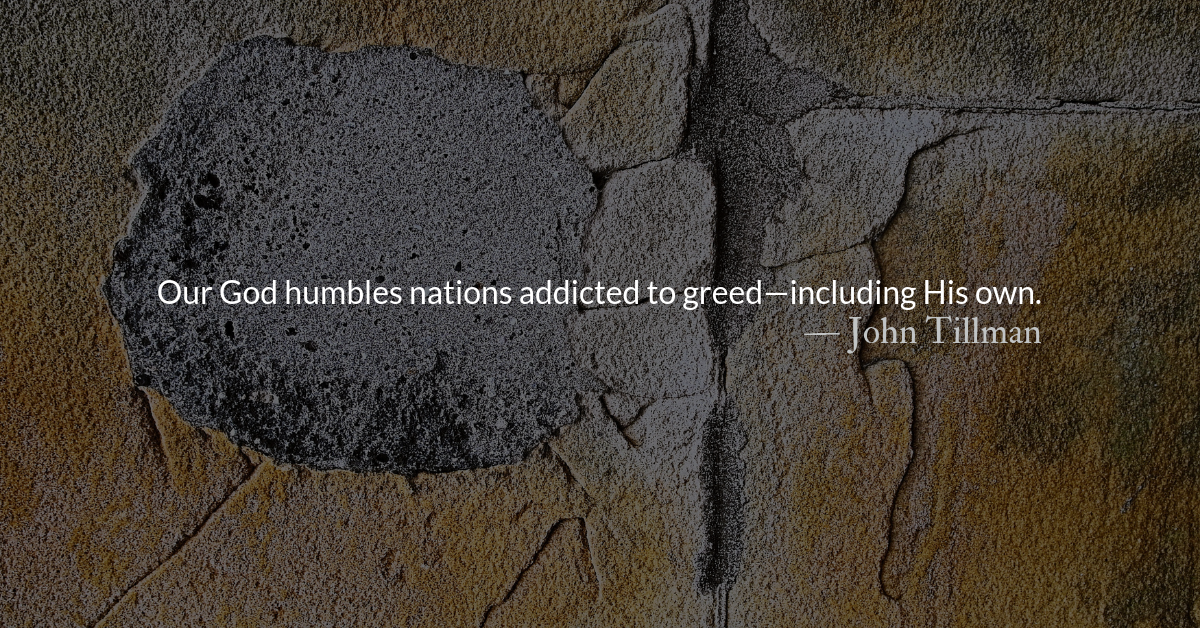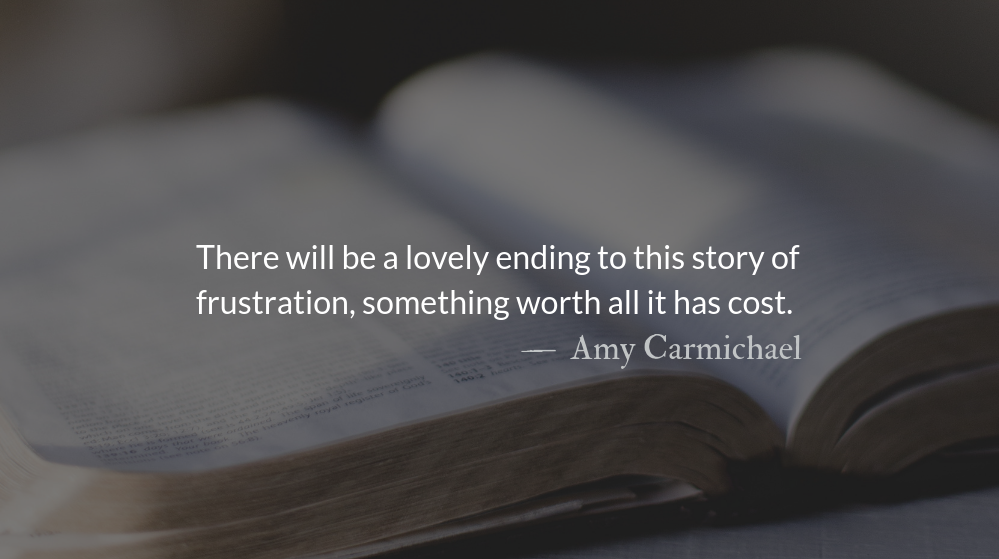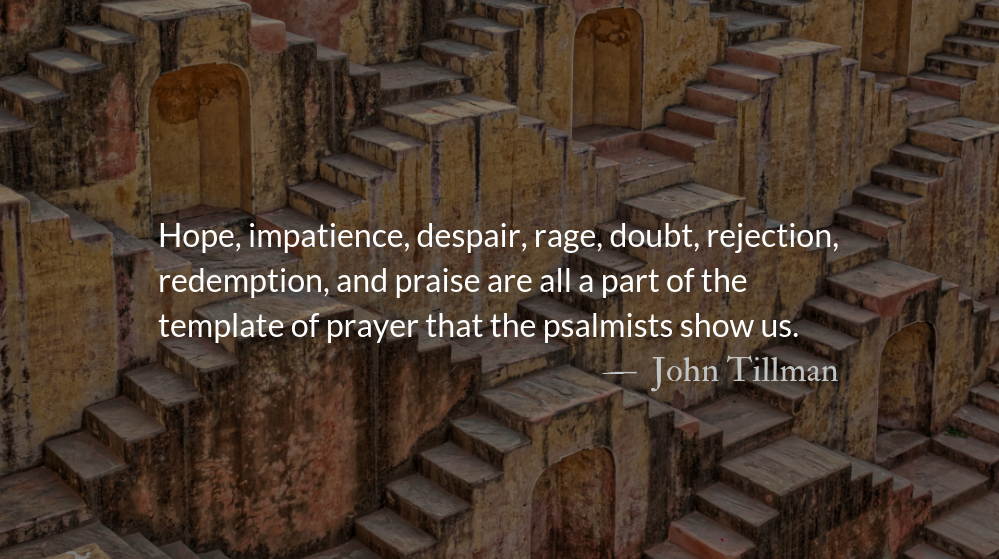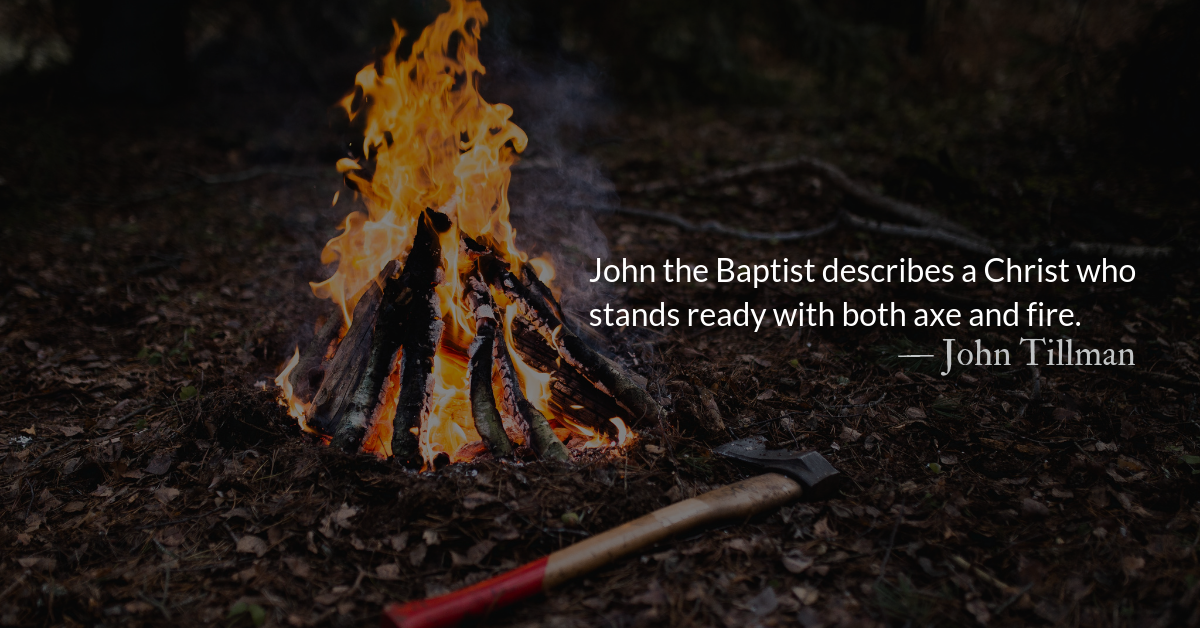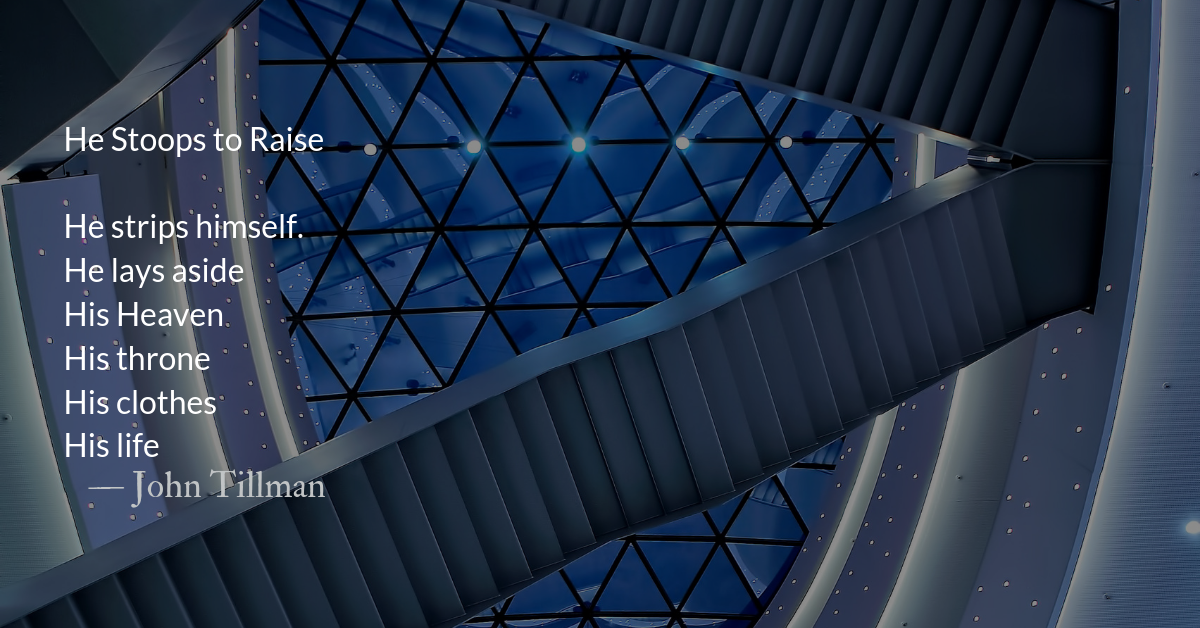Psalm 119.50-53, 61, 64
My comfort in my suffering is this:
Your promise preserves my life.
The arrogant mock me unmercifully,
but I do not turn from your law.
I remember, Lord, your ancient laws,
and I find comfort in them.
Indignation grips me because of the wicked,
who have forsaken your law…
Though the wicked bind me with ropes,
I will not forget your law…
The earth is filled with your love, Lord;
teach me your decrees.
Only the suffering God can help. — Dietrich Bonhoeffer
Reflection: God Shivering on Concrete
By John Tillman
There is great wickedness in the world. Yet, in such a world, the psalmist proclaims God’s love, the power of God’s laws, and the strength of his desire to know his God more deeply.
Even in a world in which a person may be bound with ropes, or separated from their family, or denied justice, or put into a cage, or killed for the convenience of others, or hung from a tree, or gunned down in a church… Even in such a world, the psalmist tells us, “God’s love is evident.”
Wickedness is evident. But God’s love is also evident.
It is evident in the many Christian and secular organizations that move, at times into dangerous circumstances, to help the downtrodden, the poor, and those purposely excluded from justice. It is evident in the disaster that our God promises to bring upon a nation that ignores its responsibilities to the poor and to the foreigner. Our God humbles nations addicted to greed—including His own. Our God sends help to the helpless, no matter the owner of the goods, the ship, the truck, or the organization.
God’s love is evident in God’s help, but more so in his presence. Our God is with those who suffer.
Our God lies on concrete floors under aluminum blankets with abandoned children. He bleeds on the floor of a sanctuary with victimized worshipers. His arms bear wounds of unjust captivity. He bears scars familiar to those who have been brutalized by government forces.
God’s love is, of course, most fully evident in what we call the gospel. The gospel puts wickedness to death in the way it deserves. Christ, through the cross, drags evil to Hell and abandons it there, setting free Hell’s captives. But merely chuffing about “the gospel” in the face of evil makes us into signposts on the road to Hell rather than gatekeepers in the house of our God.
One of the endlessly repeating themes of scripture and especially the Old Testament is that God’s people are to be kind and compassionate to foreigners and strangers.
Reach out in God’s love in any way that is available to you, whether through financial means or political. Even giving a cup of water in the name of Christ to the least of these will be remembered.
– From The Divine Hours: Prayers for Summertime by Phyllis Tickle.
Today’s Readings
Deuteronomy 29 (Listen – 4:14)
Psalm 119:49-72 (Listen – 15:14)
Thank You!
Thank you to our donors who support our readers by making it possible to continue The Park Forum devotionals. This year, The Park Forum audiences opened 200,000 free, and ad-free, devotional content. Follow this link to join our donors with a one-time or a monthly gift.
Read more Truth Unwanted :: A Guided Prayer
Malachi testifies: “I will come to put you on trial. I will be quick to testify against those who…deprive the foreigners among you of justice,” says the Lord Almighty.”
Read more about In Denial about Injustice
The sins that brought God’s judgment and caused the exile of Israel were multi-faceted. But there is a common thread—injustice. Having a justice system is not the same as having justice.

